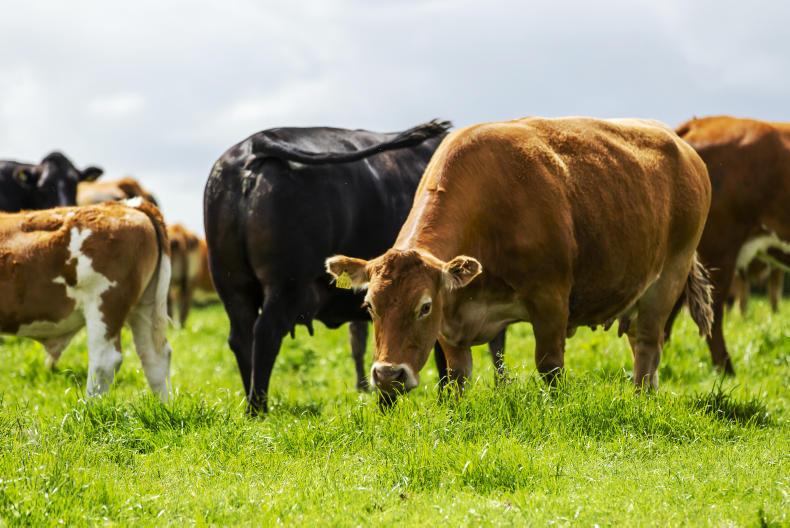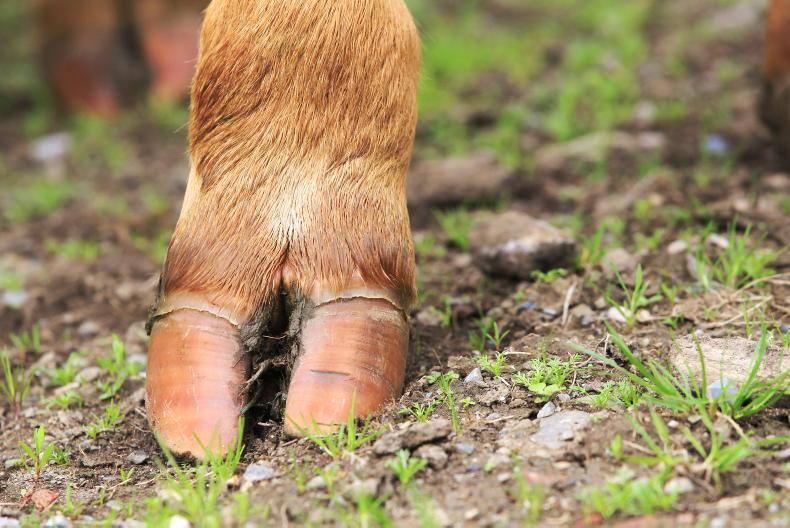There is overwhelming support among both farming and environmental lobby groups for direct payments in NI to be based on basic payment entitlements until at least 2021, and for an ongoing farm support payment to be part of long-term policy in NI.
DAERA issued a stakeholder engagement exercise on future agricultural policy in NI last August and a summary of responses was published by the Department this week.
The document states that 56 of 59 respondents support DAERA’s proposal to retain entitlements as the basis of direct support until a new post-Brexit agricultural policy is agreed.
The current plan is for the 2020 and 2021 scheme years to be a transition period, with a new policy beginning to roll out from 2022.
Strong support
In the longer term, DAERA states that there is “strong support” among stakeholders for its proposed “basic farm resilience support” payment to form part of agricultural policy in NI from 2022.
The aim of this income support payment is to protect farmers from volatile markets, but at a lower rate than the current basic payment scheme.
Another suggested that payments should be at a lower level so as not to mask poor performance and inefficiency
The summary of stakeholder responses states that three farmer organisations suggest the new payment should be worth 50% of current entitlements, while one group proposes a higher rate of 75%.
“Another suggested that payments should be at a lower level so as not to mask poor performance and inefficiency,” the document reads.
There was also “broad support” for resilience payments to take account of disadvantaged areas, but there was an “even split” among stakeholders for introducing tiered payments (based on land area), and an overall cap on what an individual can receive.
England
The likely rollout of basic farm resilience support in NI is significantly different to plans in England where payments are to be completely de-linked from land and put into new environmental land management contracts by 2028.
However, DAERA state that there was “good support” for a proposed series of environmental principles to be incorporated into future agricultural policy in NI.
In last year’s stakeholder engagement, the Department floated the idea of insurance type measures to protect farm incomes from volatility
The summary of stakeholder responses also suggests that there is backing for future incentives for environmental measures to become more lucrative and go beyond the current model of only covering costs and lost income.
In last year’s stakeholder engagement, the Department floated the idea of insurance type measures to protect farm incomes from volatility. There was a mixture of views on this, with some raising concerns that NI farms are mainly small businesses which would make income insurance difficult to administer.
Respondents were also in favour of DAERA’s other key proposal of ensuring transparency in the supply chain, mainly through compulsory price reporting by processors.
Short term
In the shorter term, with the UK currently set to leave the EU on 31 October 2019, there will be scope to make some changes to the existing support regime during the 2020-2021 transition period.
However, respondents to the stakeholder engagement were split on whether greening requirements, such as the three-crop rule and ecological focus areas, should be abolished from 2020.
There was support for continuing the young farmer payment (YFP) to eligible applicants after 2019, although views were more mixed on allowing new applicants to the YFP and regional reserve during the transition period.
Funding
Although the design of future agricultural policy is a NI-specific matter, the issue of funding will ultimately be decided by the Treasury in London.
Under the DUP-Conservative confidence and supply agreement, agricultural policy is to remain at current levels until the end of the parliament (expected to cover 2020 and 2021 scheme years).
However, there is no commitment to a specific level of funding after that, and an early general election before 2022 would bring an end to the short-term guarantee.
Read more
Gove proposes delinked payments
Area payments – how much is too much?
There is overwhelming support among both farming and environmental lobby groups for direct payments in NI to be based on basic payment entitlements until at least 2021, and for an ongoing farm support payment to be part of long-term policy in NI.
DAERA issued a stakeholder engagement exercise on future agricultural policy in NI last August and a summary of responses was published by the Department this week.
The document states that 56 of 59 respondents support DAERA’s proposal to retain entitlements as the basis of direct support until a new post-Brexit agricultural policy is agreed.
The current plan is for the 2020 and 2021 scheme years to be a transition period, with a new policy beginning to roll out from 2022.
Strong support
In the longer term, DAERA states that there is “strong support” among stakeholders for its proposed “basic farm resilience support” payment to form part of agricultural policy in NI from 2022.
The aim of this income support payment is to protect farmers from volatile markets, but at a lower rate than the current basic payment scheme.
Another suggested that payments should be at a lower level so as not to mask poor performance and inefficiency
The summary of stakeholder responses states that three farmer organisations suggest the new payment should be worth 50% of current entitlements, while one group proposes a higher rate of 75%.
“Another suggested that payments should be at a lower level so as not to mask poor performance and inefficiency,” the document reads.
There was also “broad support” for resilience payments to take account of disadvantaged areas, but there was an “even split” among stakeholders for introducing tiered payments (based on land area), and an overall cap on what an individual can receive.
England
The likely rollout of basic farm resilience support in NI is significantly different to plans in England where payments are to be completely de-linked from land and put into new environmental land management contracts by 2028.
However, DAERA state that there was “good support” for a proposed series of environmental principles to be incorporated into future agricultural policy in NI.
In last year’s stakeholder engagement, the Department floated the idea of insurance type measures to protect farm incomes from volatility
The summary of stakeholder responses also suggests that there is backing for future incentives for environmental measures to become more lucrative and go beyond the current model of only covering costs and lost income.
In last year’s stakeholder engagement, the Department floated the idea of insurance type measures to protect farm incomes from volatility. There was a mixture of views on this, with some raising concerns that NI farms are mainly small businesses which would make income insurance difficult to administer.
Respondents were also in favour of DAERA’s other key proposal of ensuring transparency in the supply chain, mainly through compulsory price reporting by processors.
Short term
In the shorter term, with the UK currently set to leave the EU on 31 October 2019, there will be scope to make some changes to the existing support regime during the 2020-2021 transition period.
However, respondents to the stakeholder engagement were split on whether greening requirements, such as the three-crop rule and ecological focus areas, should be abolished from 2020.
There was support for continuing the young farmer payment (YFP) to eligible applicants after 2019, although views were more mixed on allowing new applicants to the YFP and regional reserve during the transition period.
Funding
Although the design of future agricultural policy is a NI-specific matter, the issue of funding will ultimately be decided by the Treasury in London.
Under the DUP-Conservative confidence and supply agreement, agricultural policy is to remain at current levels until the end of the parliament (expected to cover 2020 and 2021 scheme years).
However, there is no commitment to a specific level of funding after that, and an early general election before 2022 would bring an end to the short-term guarantee.
Read more
Gove proposes delinked payments
Area payments – how much is too much?









SHARING OPTIONS